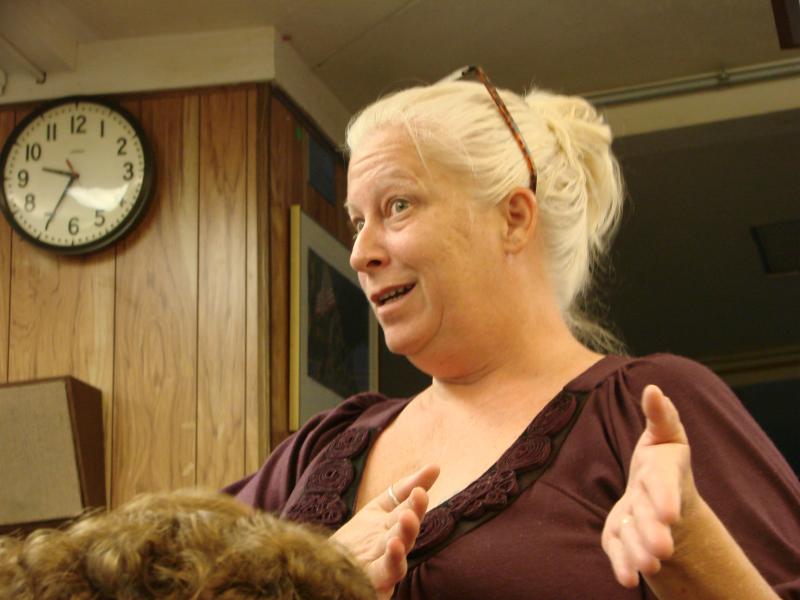Which school to close in Wiscasset is looking like more of a question.
School Committee Chairman Steve Smith said recently that he was leaning toward Wiscasset Middle School, as the closure that would cost less and be less disruptive to students and staff than other options. But then he started hearing from residents, about a dozen, who said they would rather keep open the middle school and close Wiscasset Primary School.
That led him to dig deeper into the dollars and other factors in the upcoming big decision for the town that left Regional School Unit 12 on July 1.
Now he is less sure which school to close, he said.
It appears that operating costs for the middle school would be about $31,000 a year less than at the primary school, Smith told about three dozen residents who showed up in the Wiscasset High School library for the first formal discussion on consolidation. Those savings could offset or help offset the cost to fit parts of the middle school to suit the needs of younger students, but whether it comes out to a wash the first year remains to be seen, he said.
Some residents raised concerns that the middle school had no room to grow, including no room to add parking. However, Smith said the town could convert the tennis courts into parking. The courts may not have been used in the past 10 years, he said.
Some townspeople spoke in support of keeping the middle school open, for its larger spaces for lunch and other activities, and its longer history as a part of the town and a school many people attended.
“What the middle school has so much better than the primary school is the facility itself. You’ve got a big gymnasium, a full-sized stage ... a full-sized cafeteria,” Marita Fairfield said.
An attachment many people feel to the middle school isn’t making the choices any easier, according to committee member Eugene Stover.
“Sentimentality is running quite high in this community,” particularly among alumni, he said. “They’re not thinking of the tax bill they’re going to get next year.
“We’re damned if we do. We’re damned if we don’t.”
Going from three schools to two schools will mean the loss of some services, although it’s not yet known what those losses would be, Smith said. Resident Judy Flanagan urged for care in talking about loss of services. Those words could drive away students from other towns, she said.
Todd Souza, director of Wiscasset’s Parks and Recreation Department, said the department could work with the schools to keep programs going, such as a recreation department team for a sport the schools might no longer be able to offer.
For a consolidation referendum to make it onto the November ballot, the town needs the school committee’s decision on a closure by Sept. 16, Smith said. Committee members made plans to meet at 6:30 p.m., Sept. 15, at the high school to consider voting to close a school, and which one, the middle or primary school, he said.
Then he would like to see a citizens petition call for a binding referendum. Otherwise, the committee’s decision stands and the school would close without a town vote that could keep a later school committee from reversing the current panel’s decision, he said. If no one else starts the petition, he would be happy to do it himself, as a citizen, he told reporters following Thursday’s meeting.
Before the meeting on Sept.15, Interim Superintendent of Schools Lyford Beverage plans to prepare more information for comparing a middle school closure to a primary school one.
Committee Vice Chairman Glen Craig said he and other residents need to know more than they do now, to make an informed decision. He cautioned against the committee rushing a decision in order to get the issue on the November ballot.
In another development, Smith mentioned that closing a school was, in his view, a first step toward something else: a regional high school, built in a partnership with either Bath or the Boothbay region. With enough planning, that could happen in another four, five or six years, he said. That’s about how long he said Wiscasset has before Wiscasset High School’s enrollment may be too low to sustain the school.
A regional high school, perhaps in Edgecomb, would be better than not having a high school and instead having to send students to other ones, on tuition, Smith said.
“As soon as you tuition out, you lose all control,” he told residents.



























